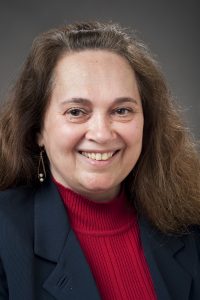Emily Auerbach – “The Power to Change Lives: The UW Odyssey Project”
October 24th, 7pm, 1111 Genetics/Biotechnology Center, 425 Henry Mall

Emily Auerbach is a Professor of English at the University of Wisconsin-Madison with a joint appointment in the English Department and the Department of Liberal Studies & the Arts (Outreach). She has received teaching excellence awards from University Outreach, UW-Madison, and the UW System; an arts award from the UW-Madison; and national awards for several of her projects.
In addition to publishing books and articles on women writers and on the overlap between music and literature, Emily Auerbach has developed a series of radio programs, written guides, and courses about women writers called “The Courage to Write.” The series has received four national awards, including the Ohio State Award for Excellence in Broadcasting presented at the National Press Club and a Distinguished Program Award from the American Council of Higher Education.
Emily Auerbach’s most recent book is entitled “Searching for Jane Austen.” She serves as director of the UW Odyssey Project, a free humanities course for adults facing economic hardship. She has served as co-host of “University of the Air” since 1995.
Wow, this week’s talk by Emily Auerbach was truly refreshing. I had the chance to watch the full-length video that she showed a portion of during her talk, prior to class and was waiting in anticipation for her to speak for days. Her talk surrounded the UW Odyssey Project, a program that allows low income individuals to take a 6-credit college course sequence in the humanities at a Madison area library. When she began creating the blueprint for this project, she shared that she believed the University should be “serving a much wider audience.” Right now, she shared, we are serving the needs of the privileged. Her approach during this project was under the belief that to get out of poverty, individuals need to be given an opportunity. The UW Odyssey Project is that opportunity.
Interestingly, Emily began working at UW-Madison as a traditional English professor with a PhD. However, a job eventually opened in UW-Extension and she began teaching non-credit classes to people who simply wanted to learn. She soon fell in love with nontraditional learning, and found that literature has the power to “life off the pages and jump into lives.” She shared that she found this job that utilizes the Wisconsin Idea every day and that she is not one who works to “publish and parish.” Bringing the material she teaches from the Odyssey classes and into prisons to share discussions with individuals behind bars is just one example of the ways in which she is extending information about the humanities far beyond the walls of UW.
Emily also had criticism of the University’s ability to live up to the Wisconsin Idea in terms of the economic and racial diversity on our campus. She understands that poverty has a generational effect; as we encourage parents to return to school or enter for the first time, this will also allow their children to adopt positive ideations toward school. Because of this, the Odyssey Project is built directly into UW as a part of our University to continue learning. The mission of our school and the Wisconsin Idea seemed to make it easier to make a case for this program – Emily shared that she has given talks at Stanford and Middle Tennessee and these schools did not receive the same support.
I really enjoyed Emily’s talk. I’m not sure if it was the passion that filled her stories, or the video with firsthand experiences, or the fact that the program is still in existence, but I felt very engaged in this talk. The fact that 80% of the students that participate in the Odyssey Project continue to take other college courses is incredible, and it shows that Emily is doing a wonderful job of finding students who truly have a hunger to learn. However, I also wonder about the 70 students who are denied access to the program each year. Emily stated that she gives them some support to engage in schooling elsewhere, but I would be interested to know if their perceptions of schooling changes after being turned away. Overall, I loved her talk and the embodiment of lifelong learning and also the diversity of learning that can occur beyond the walls of UW-Madison.